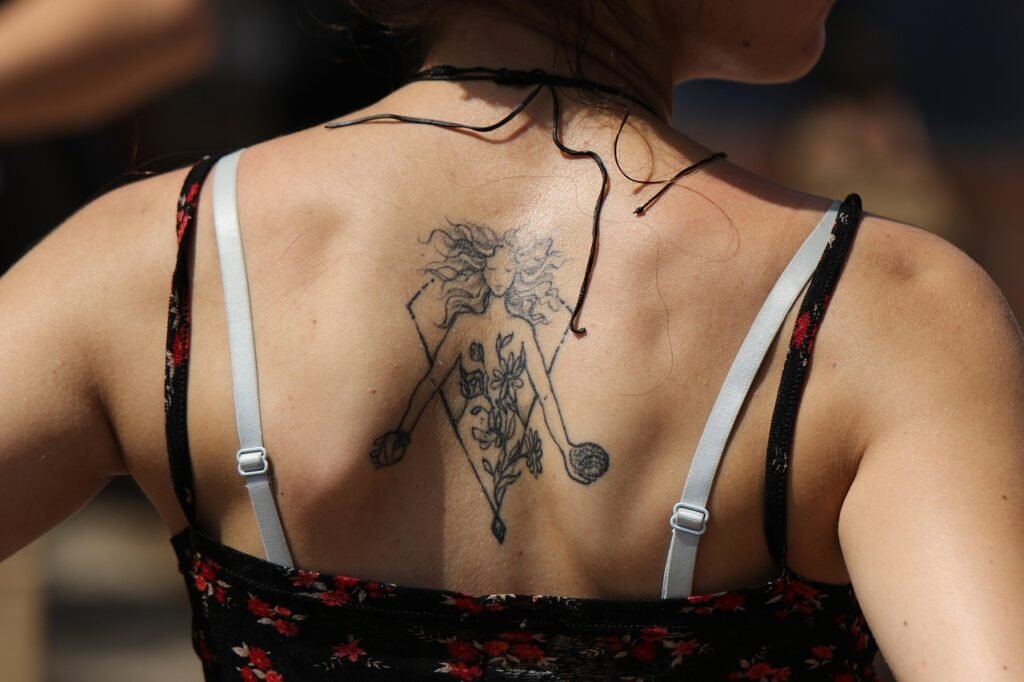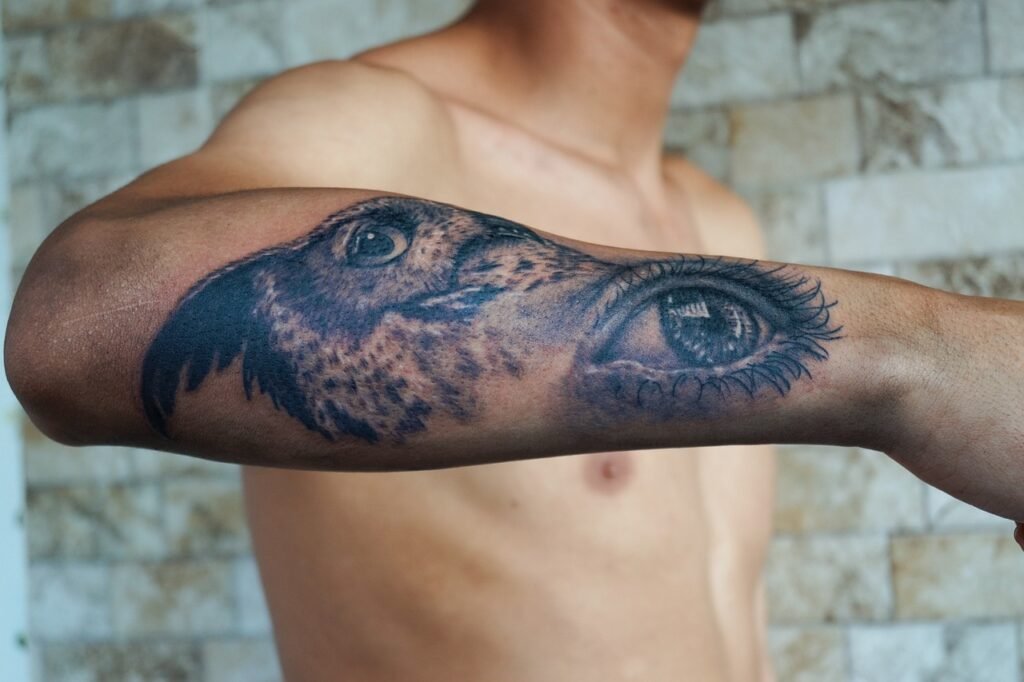Getting your first tattoo is equal parts thrilling and nerve-wracking. With 42% of UK adults under 40 now inked—up from 29% in 2020—the stigma around tattoos has vanished, replaced by a cultural embrace of body art as self-expression. But between rising studio prices and evolving styles, navigating your first tattoo requires strategic planning. This guide breaks down everything from hidden costs to cutting-edge aftercare, ensuring your debut ink becomes a timeless treasure, not a cover-up candidate.

Understanding UK Tattoo Costs: Budgeting Beyond the Hourly Rate
While the average hourly rate for UK tattoo artists sits at £80–£150, your total cost hinges on three factors:
- Design Complexity
- Small symbols (≤3”): £60–£150
- Micro-realism portraits: £200–£400 (0.18mm needles for detail)
- Full-color sleeves: £1,800–£3,500 (20–25 hours)
- Artist Expertise
- Apprentices: £50–£80/hr (ideal for simple scripts)
- Seasoned specialists: £120–£200/hr (mandatory for photorealism)
| City | Hourly Rate | Daily Rate (6-8 Hours) |
| London | £120–£200 | £600–£800 |
| Manchester | £90–£130 | £500–£650 |
| Edinburgh | £80–£110 | £450–£600 |
| Liverpool | £60-£150 | £400-£500 |
Pro Tip: 78% of artists waive consultation fees if you book a session—ask before paying.
2025’s Top Styles for First-Timers
1. Bio-Mechanical Botanicals
Fusing organic florals with geometric precision, this style lets you scale designs over multiple sessions. A 4” forearm vine starts at £350, expandable into a full sleeve.
2. Fingerprint Integration
Using 3D scanning tech, artists like Brighton’s Mia Chen transform clients’ fingerprints into custom mandalas (£250–£400).
3. Negative Space Minimalism
Delicate linework with intentional gaps ages better than solid fills. A 2” wrist design averages £90–£120.
Trend Alert: 22% of Gen Z clients now request AR-enabled tattoos—scan with your phone to unlock animations.

Vetting Your Artist: The 5-Point Checklist
- Portfolio Consistency
- Look for uniform line weights and packed color saturation.
- Avoid artists who over-edit photos—ask for healed work shots.
- Hygiene Credentials
- Clinics should autoclave needles (steam-sterilized) and use single-use ink caps.
- Red flag: Reusing needle cartridges or non-medical gloves.
- Communication Style
- Top artists will:
- Explain why certain placements age poorly
- Adjust designs to complement your skin tone
- Provide a written aftercare plan
- Top artists will:
- Payment Transparency
- Deposits should be 10–25% of total estimate (non-refundable).
- Avoid cash-only studios; regulated shops take card payments.
- Reviews That Tell Stories
- Skip generic “great experience” reviews. Look for:
- Mentions of pain management
- Healing progress photos
- Willingness to fix blowouts
- Skip generic “great experience” reviews. Look for:
The Tattoo Process: Step-by-Step
Pre-Appointment Prep
- 48 hours prior: Hydrate with hyaluronic acid supplements to plump skin.
- 24 hours prior: Shave the area yourself if needed (studios charge £10–£20).
In the Chair
- Numbing options:
- Cryo-air: £15–£30 (cold air reduces swelling)
- Topical lidocaine: £10–£20 (lasts 1–2 hours)
- Speak up if:
- The stencil placement feels off
- You need more breaks (common during 3+ hour sessions)
Immediate Aftercare
- First 48 hours:
- Leave saniderm film on (unless allergic)
- Wash with pH-neutral soap (£8–£12 on Amazon)
- Days 3–14:
- Apply fragrance-free balm 3x daily (avoid petroleum-based products)
- No swimming/sun exposure
Avoiding Common First-Timer Mistakes
- Impulse Designs
Fix: Wait 6 months before inking meme-inspired trends like “AI-generated doodles.” - Ignoring Skin Type
Oily skin? Avoid watercolor styles—they blur faster. - Cheaping Out
Bargain tattoos cost 3x more in laser removal. The UK average for laser sessions: £80–£150 per visit.
Your Next Steps
- Book Consultations
Most artists offer free 15-minute Zoom calls to discuss ideas. - Budget Smart
Save 15% over your quote for potential touch-ups. - Join Communities
Facebook groups like UK Tattoo Beginners share artist recommendations and healing tips.
Ready to Take the Leap?
Your first tattoo should be a collaboration—equal parts your vision and the artist’s expertise. Use this guide to ask informed questions, dodge rookie pitfalls, and join the 89% of Brits who call their first ink “a milestone of self-discovery.”
Still hesitating? Many studios now offer temporary ink trials using Henna-style dyes that last 2–4 weeks—the perfect test run.
